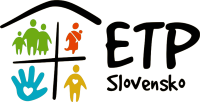Project Summary
The Open Society Institute has entered into a partnership with ETP Slovakia in late 2006, to implement a three-year Individual Development Account program targeting communities in Eastern Slovakia which have a high concentration of low-income Roma.
IDAs have a ten-year history in the United States, and the program has also been successfully adopted in a number of countries, proving that even the poorest people can save on a regular basis. The funds matching these savings under the program enable participants to have higher aspirations, including asset goals that would otherwise be beyond their means.
Participants are expected to demonstrate that they can both generate income and save some of this. Matching funds then act as a reward for behavior which steers people out of poverty. It provides a step up towards otherwise unattainable assets such as home ownership, home repair, vocational certification, education or enterprise start-up
Participants have been receiving financial education that can reduce their economic disenfranchisement and dependency, and increase their knowledge of money management and legal issues.
The greatest benefit of the program is that the participants take an active part in it and achieve their asset goals through their own efforts. Its long-term purpose is to demonstrate the superiority of conditional cash transfers over the existing Slovakian welfare system; to encourage welfare policy away from meeting the short-term subsistence of beneficiaries and toward helping beneficiaries reach financial independence.
The program offers, therefore, an opportunity for low-income participants to play an active part in improving of their own financial situation, and therefore indirectly allows them to achieve goals such as increasing the market value of the property in which they live, increasing their social mobility and improve their chances for employment, increase and make their income more predictable. It also reflects the beginning of a trend from simply giving benefits to poor people to benefits which require a commitment from the recipient.
After conducting focus group discussions with Roma communities, the villages of Jablonov, Nálepkovo, Ostrovany, Rudňany, Spišský štvrtok, Turňa nad Bodvou and the towns of Stará Ľubovňa and Spišské Podhradie, where ETP Slovakia operates Community Centres have been selected as the Program’s sites.
Typical assets saved for are a Driver’s Permit, purchasing a home computer, home purchase, repair or extension, e.g. building bathroom/kitchen, or starting a small business.
All participants receive personal money management counseling, and if applicable, assistance in purchasing a home or starting a small business. ETP Slovakia“ Personal Advisors receive the applications, verify candidates“ eligibility, help participants develop a family budget, provide basic financial education, track the participants’ saving activity, provide advice during financial emergencies, and ultimately issue matching funds. Participants are requested to enter into an agreement (a Contract of Personal Responsibility) whereby they promise to listen to advice given by ETP Slovakia staff relating to the welfare of their families generally.
At the end of 2007 the achievements are:- 126 savers have been engaged- there has only been 17% drop out in first year of the project- local authorities have been very keen on their families having the chance to enroll in the scheme- there is intense interest from areas where community mobilisation has not previously taken place – the vast majority of savers wish to engage in further self help, e.g. a home improvement loan from Habitat for Humanity International- overwhelmingly positive reactions have been forthcoming from national local media- interest has been shown in the pilot by a Government Ministry of Construction and Regional Development and the Ministry of Labor, Social Affairs and Family, Office of the Slovak Government of the Plenipotentiary for Roma Communities and other national and international institutions.The pilot has demonstrated that:- Roma families do wish to save for assets which bring benefits to their family life- Roma families are capable of self help- Non Roma people are impressed by Roma families’ ability to engage in self help- there is widespread demand for such programs- as part of a comprehensive approach to multiple deprivation, an IDA scheme blends very well with other initiatives such as housing, social, legal and health promotion services
During 2007 126 clients were involved in IDA program, of which 5 have been saving for educational asset (e.g. Driver’s Permit, a computer purchase) and 121 clients have been saving with the aim of improving housing conditions (e.g. windows and doors replacement, house purchase, etc.). The drop out rate 20%.
ETP Slovakia also administers home improvement loans, in conjunction with its partner, Habitat for Humanity, and IDA clients may have the opportunity to obtain such a loan. Where families have established a track record of savings and/or loan repayment then it may be possible for bank loans to be arranged.
In addition to any other benefits, the Program has observed changes in self-esteem, changes in the welfare of children and improvements in the stability of households.

